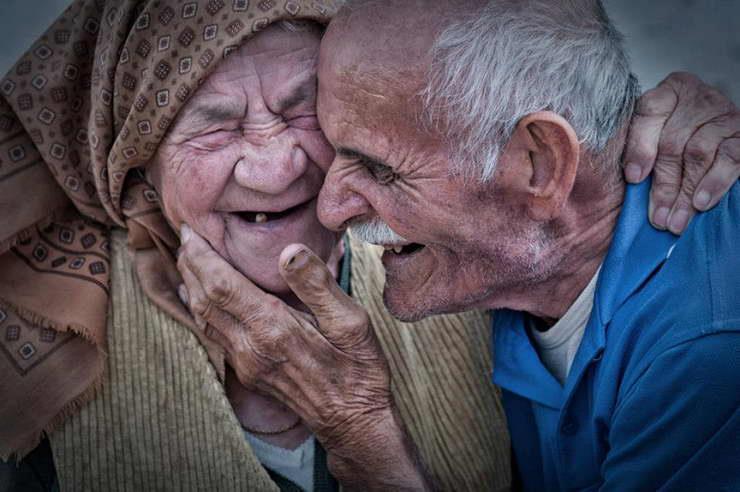When you think of the last stage and end of life, what comes to mind? For many people, terminal illness can be highly challenging both physically and emotionally. However, the caregiver’s guide to end-of-life care can provide some much-needed support. In this blog post, we will discuss what is last stage and end of life means and what one can do about it. So, keep on reading!
Contents
- 1 What Is the Last Stage Care?
- 2 When Is The Time For Last Stage And End Of Life Care?
- 3 Type Of Care The People In The Last Stage May Need
- 4 Planning For The Last Stage And End Of Life
- 5 Placement Options For Last Stage And End Of Life
- 6 Tips To Take Care Of Your Loved Ones
- 7 Say Good-bye Before They Go
- 8 How To Move On After The Loss?
- 9 Conclusion
- 10 A Word From Therapy Mantra
What Is the Last Stage Care?
 In the final stage, also known as the end of life, a person’s health declines rapidly. This stage can last for days, weeks, or months. The person may be in and out of the hospital and require constant care.
In the final stage, also known as the end of life, a person’s health declines rapidly. This stage can last for days, weeks, or months. The person may be in and out of the hospital and require constant care.
During the time of terminal illness, a person more demands for the end of life instead of the best care, treatment, and attention. The patient may experience physical and emotional changes, such as pain, shortness of breath, anxiety, and confusion.
So, the main focus at this time should be on making them feel as comfortable as possible and addressing their needs. Depending on the situation and illness of your loved ones, you can provide them with what they find comfortable. However, at this age, there are no right or wrong answers.
Some families choose to have their loved ones at home, while others prefer them in a hospice setting. It is important that you talk with your family about their wishes and what you think would be the best for them. You can also seek advice from professionals to get their point of view. Even with years of experience, some caregivers find the end of life to be difficult and emotionally draining.
When Is The Time For Last Stage And End Of Life Care?
There is no single specific time that indicates the need for the last stage and end-of-life care. Each individual’s situation is unique, and the decision to provide this type of care should be made on a case-by-case basis in consultation with a patient’s loved ones and health care professionals.
However, there are some general guidelines that can help you determine when it might be time to consider the last stage and end-of-life care.
Signs that a person needs end-of-life care

- The individual is no longer able to care for him or herself and requires assistance with activities of daily living, such as bathing, dressing, and eating.
- Unable to communicate or has lost the ability to understand simple commands.
- The individual experiences severe pain or discomfort that cannot be adequately managed with medication.
- The individual is in a coma or has been diagnosed with a terminal illness.
If you are considering the last stage and end-of-life care for a loved one. It is important to remember that this is a difficult decision that should not be made lightly. You will need to weigh all of the pros and cons carefully and discuss your options with your loved one. As well as with his or her health care professionals.
Type Of Care The People In The Last Stage May Need
As your loved ones move into the last stage of life, they may need more care and support than ever before. Depending on the person’s needs, they may require the following care;
- Practical care and assistance – This may include help with personal care, household tasks, medication, and appointments. Perhaps your loved one needs help getting dressed or cooking dinner.
- Emotional support – It’s important to offer emotional support during this time, as the person may be facing many difficult challenges. You can provide support by listening to them and offering encouragement.
- Medical care – The person in the last stage of life may require around-the-clock medical care from a doctor or nurse. This may include managing medications, providing nutrition, and attending to any other needs the person has.
- Spiritual care – Religion or spirituality can be a source of comfort for many people at the end of life. If your loved one is religious, you may want to provide them with access to a pastor or other spiritual leader.
- Grief support – It’s natural for family and friends to experience grief during this time. You may want to seek out support groups or counseling to help you deal with your feelings.
It’s important to remember that everyone experiences the last stage and end of life differently. Some people may want a lot of care and support, while others may prefer to spend their time alone. Be sure to talk with your loved ones about what they want and need during this difficult time.
Planning For The Last Stage And End Of Life
 It is important to have a plan for the last stage of life and end of life. This is the time when you are close to death and may not be able to make decisions for yourself. For any family member, it is necessary to discuss your loved one’s feelings before the last stage of medical crisis strikes.
It is important to have a plan for the last stage of life and end of life. This is the time when you are close to death and may not be able to make decisions for yourself. For any family member, it is necessary to discuss your loved one’s feelings before the last stage of medical crisis strikes.
Such planning includes;
- Prepare early – The last stage and end of life journey can be long and difficult. Families should start preparing for it as soon as possible. This will help everyone understand their roles and responsibilities.
- Make a decision – It is important to make decisions about the loved one’s care before the last stage of life happens. This includes deciding if they want to be at home or in a hospital or hospice.
- Get organized – During the last stage, there will be many papers and legal documents to deal with. Families should get organized and have a system for dealing with them. This will help avoid any confusion or problems later on.
- Stay calm – The last stage of life can be very emotional for everyone involved. Families need to stay calm and supportive of each other during this time.
- Focus on your values – It may be helpful to focus on your loved one’s values during the last stage of life. This will help you make decisions that are important to them.
- Address conflicts if they arise – Conflicts are bound to happen during the last stage of life. Families need to address them and try to find a resolution. This will help everyone move forward in a positive way.
The last stage of life and end of life can be difficult for families. However, by planning and preparing for it, they can make the journey a little easier. In fact, one should consider these things long before the loved one enters the final stage. This will ensure that everyone is on the same page and knows what to expect.
Placement Options For Last Stage And End Of Life
Every person’s journey through life is unique.
Hospice Or Nursing Home Care
For some, the last stage and end of life may occur in a hospice or nursing home. It is often a time when many medical decisions must be made and the care of the person is of the utmost importance.
Hospice is generally a place where people go to die. It is a type of care that focuses on providing comfort and support to those who are terminally ill. Nursing homes, while not specifically for people who are dying, can also be a good option for those in the last stage of life. They offer 24-hour care and often have staff who are trained in end-of-life care.
However, hospice care is provided at home also. If a person wishes to spend their last days at home with their loved ones, hospice can provide the necessary care and support.
There are many options for those in the last stage of life. It is important to discuss these options with family and healthcare providers in order to make the best decision for the individual. No one decision is right for everyone. The most important thing is that the person receives the care and support they need during this difficult time.
Home Care With Family And Friends
 For others, home care may be the best option. This can provide comfort and support to the person and their loved ones. In some cases, hospice services may be available to assist in this type of care. It is also important to have discussions with family and healthcare providers to make sure everyone is on the same page about what is best for the person.
For others, home care may be the best option. This can provide comfort and support to the person and their loved ones. In some cases, hospice services may be available to assist in this type of care. It is also important to have discussions with family and healthcare providers to make sure everyone is on the same page about what is best for the person.
Home care is considered an option for the last stage of life because it allows the person to remain in a familiar environment with the people they love. This can be an important part of the healing process for both the person and their loved ones.
Family and friends can provide home care by taking shifts to be with the person, providing meals and snacks, helping with bathing and grooming, and doing light housekeeping.
There are many factors to consider when making the decision about where someone should spend their last days. Some things to think about include:
- Is the person comfortable and happy in their current setting?
- Do they have access to the care and support they need?
- Can their loved ones easily visit them?
- Are there any religious or cultural considerations that need to be taken into account?
Ultimately, the decision about where someone spends their final days is a personal one. And it should be made in consultation with family and healthcare providers. There are many options available, and the most important thing is that the person is comfortable and receives the care they need.
Tips To Take Care Of Your Loved Ones
There are some stages where your loved ones show some physical symptoms. And, of course, there are different levels of severity. The last stage is when the person is close to death and may have only a few weeks or days left.
Care With Physical Symptoms
There are some things you can do to make this time easier for your loved ones. When they may have physical symptoms that need to be taken into account.
Here are some tips to help you out:
- Make sure they are comfortable and in a good position. This may mean adjusting their bed or chair or helping them get into a comfortable position.
- Keep a close eye on their breathing and make sure they are not having any difficulty breathing. If they are, call the doctor right away.
- Be prepared for changes in their appearance. Their skin may become pale, they may lose weight, and their hair may thin out.
- Make sure they have plenty of fluids and eat regular meals, even if they don’t feel like eating. Try to get them to eat high-calorie foods if they can tolerate them.
- Make sure they have access to pain medication if they need it.
- Keep a positive attitude and be supportive. This is a difficult time for both of you.
- Make sure their living space is clean and organized. This will make it easier for you to take care of them.
- Take care of yourself, too. You need to be strong for your loved one. Get plenty of rest and take time for yourself. Talk to others who are going through the same thing so you can share your experiences and get support.
The last stage of life can be difficult for both the person who is dying and their loved ones. But by following these tips, you can make it a little bit easier.
Care With Providing Emotional Support
 Along with physical symptoms, the last stage of life can also be emotional for your loved ones. They may feel a range of emotions, including sadness, anger, frustration, and fear.
Along with physical symptoms, the last stage of life can also be emotional for your loved ones. They may feel a range of emotions, including sadness, anger, frustration, and fear.
Here are some tips for providing emotional support:
- Be there for them. Listen to them and let them talk about their feelings.
- Don’t judge or criticize them. This is a difficult time and they need your support.
- Encourage them to seek out professional help if they need it. There may be counseling or support groups available that can help them get through this time.
- Offer practical assistance. Help with things like grocery shopping, laundry, or cleaning the house.
- Allow them to reminisce. This can be a way for them to process their feelings.
- Respect the patient’s privacy at all times. They may not want to discuss their condition with others.
Be patient with them and understand that they are going through a tough time. The last stage of life can be very emotional and stressful. Your loved ones may need your support more than ever during the last stage of life. Therefore, there are various things you can do to take care of your loved ones. This will make the end of life a little bit easier for them to handle.
Say Good-bye Before They Go
It is important to say goodbye to your loved ones before they go. You may not get another chance. It is a time of reflection and love. Make sure you tell them how much you appreciate them and all they have done for you. Let them know that you will always remember them and their kindness.
Although, it seems impossible to let them go, know that they are in a better place. They are no longer in pain and are finally at peace. You will see them again one day. Until then, keep them close to your heart.
Saying goodbyes is never easy, but it is a necessary part of life. Know that you are not alone in this process and there is support available to help you through it. Remember that if you do not talk now, you may never get the chance. So, take a deep breath and say what is on your mind.
Just talk about your feelings even if you feel like they’re not enough. Share your memories, photos, and anything else you have to help keep them with you always.
How To Move On After The Loss?
It is the most difficult stage of the entire process. You have fought hard to get to this point, but now you find yourself struggling with what comes next. This is the last stage of life and it can be difficult to move on after it ends.
There are no easy answers when it comes to moving on after the last stage and end of life. It is a time of great loss and change. And it can be difficult to adjust to life without your loved one by your side. However, there are things you can do to make the process a little bit easier.
Tips For Moving On After The Last Stage And End Of Life Care
 Here are some tips for moving on after the last stage and end of life:
Here are some tips for moving on after the last stage and end of life:
Give yourself time to grieve
Grieving is a natural process, and you need to give yourself time to mourn your loss. It is okay to cry, scream, and express your feelings in any way that feels right to you. Don’t try to bottle up your emotions – they will only come out later in a less healthy way.
However, it is foremost important to remember that you need to take care of yourself, too. Make sure you are eating healthy and getting enough sleep. Don’t overload yourself with work or activities – give yourself time to relax and heal. Take time to grieve as it is needed.
Talk about your loved one
Talking about your loved ones can be a great way to keep them alive in your heart. Share memories with friends and family, write down your thoughts, or just talk out loud about the things you loved most about them. This can help keep their memory alive and provide some comfort during this difficult time.
Join caregiver’s support groups
This can be a great way to connect with others who are going through the same thing. There is nothing like talking to someone who understands what you are going through. Sharing your experiences can also help you process them and come to terms with them.
Find ways to honor your loved one
There are many ways to honor your loved one after they have passed away. You could create a memorial, plant a tree in their memory, or do something else that feels meaningful to you. This is a way of keeping them close and helping you move on after the last stage and end of life.
It is like giving a tribute to their life and all they meant to you. And, you can do this with whatever feels comfortable for you. Also, honoring your loved ones can provide some comfort and peace in the aftermath of their death.
Start writing a journal
This can be a great way to process your feelings and emotions. Writing can be a powerful way to work through your thoughts and feelings. It can also be helpful to look back on later when you are feeling better. In fact, writing is a great way to help you heal and move on after the last stage and end of life.
And, through writing stories, poems, or prose, you can continue to share your loved one’s life and memories long after they’re gone. Remember, you are not alone in this process. There are people who want to help you get through it. And with time, you will find a way to move on after the last stage and end of life.
Seek professional support
 When you find yourself struggling to cope, it is a good idea to seek professional support. A therapist can help you work through your feelings and provide some much-needed support.
When you find yourself struggling to cope, it is a good idea to seek professional support. A therapist can help you work through your feelings and provide some much-needed support.
The last stage of life can be difficult to move on from. But with time and patience, you will be able to find a way to move on and rebuild your life. Grieving is a process that takes time, and there is no right or wrong way to do it. Just remember to give yourself the space and time you need to heal.
If you are finding it difficult to cope after the death of a loved one, please don’t hesitate to reach out for help. There are many resources available for those who are grieving, including counseling, support groups, and online networks.
Take care of yourself
It is important to take care of yourself during this time. Make sure you are eating healthy foods, getting enough sleep, and exercising regularly. This will help you stay strong during this difficult time.
These are just some tips for moving on after the last stage and end of life. Every person is different and will grieve in their own way. There is no right or wrong way to do it – just what feels right for you. Take things at your own pace and don’t rush the process. It will take time, but eventually, you will start to feel better. The end of life is often a difficult time for loved ones left behind.
Conclusion
Conclusively, it is evident that the last stage of life is an extremely difficult time for both the individual and their loved ones. It is important to be as prepared as possible for this challenging time. And to seek out support from those who can help.
Although it is an immensely difficult process, it is also a natural one and should be embraced as such. Therefore, you should make sure to live each day to the fullest and savor every moment.
We hope that this article has provided some valuable information and insight into the last stage of life. Thanks for reading!
A Word From Therapy Mantra
Your mental health — Your psychological, emotional, and social well-being — has an impact on every aspect of your life. Positive mental health essentially allows you to effectively deal with life’s everyday challenges.
At TherapyMantra, we have a team of therapists who provide affordable online therapy to assist you with issues such as depression, anxiety, stress, workplace Issues, addiction, relationship, OCD, LGBTQ, and PTSD. You can book a free therapy or download our free Android or iOS app.


